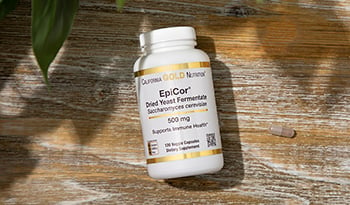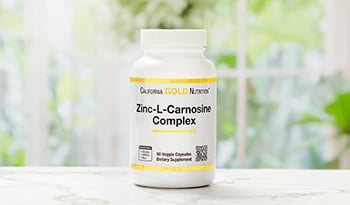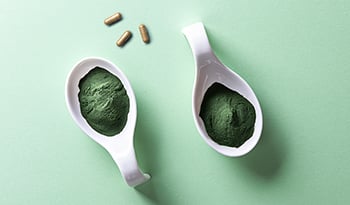Frequently Asked Questions: Pancreatic Enzymes

Enzyme preparations are one of the most useful nutritional supplements available. Enzymes are molecules that speed up chemical reactions – they either help build new molecules or they split the bonds that join molecules together to break them into smaller units. In the case of enzyme products, most often they contain digestive enzymes derived from hog pancreas (pancreatin), fungal, or plant sources. These enzymes function very similarly to the way the digestive enzymes secreted by the human pancreas function. Enzyme preparations have been shown to be useful in the following situations:
- Cancer Digestion Support
- Hepatitis C, Herpes, Zoster (shingles)
- Inflammation, Sports Injuries and Trauma
- Pancreatic Insufficiency
- Food Allergies
- Multiple Sclerosis
- Rheumatoid Arthritis and Other Autoimmune Disorders
What is the pancreas?
The pancreas is a digestive organ in the abdomen that lies just below the stomach. Its primary job is to produce enzymes required for the digestion and absorption of food. Enzymes secreted include lipases that digest fat, proteases which digest proteins, and amylases which digest starch molecules.
Can taking pancreatic enzymes actually improve digestion?
Yes, in fact, using pancreatic enzyme preparations to support proper digestive function is used in conventional medicine in cases of pancreatic insufficiency and cystic fibrosis (a rare inherited disorder). Pancreatic insufficiency is characterized by impaired digestion, malabsorption, nutrient deficiencies, and abdominal discomfort.
How do I determine if my pancreas is secreting enough enzymes?
Physicians use both physical symptoms and laboratory tests to assess pancreatic function. Common symptoms of pancreatic insufficiency include abdominal bloating and discomfort, gas, indigestion, and the passing of undigested food in the stool. For laboratory diagnosis, most nutrition-oriented physicians use the comprehensive stool and digestive analysis. Another indicator of pancreatic insufficiency is the intestinal overgrowth of the yeast Candida albicans. As well as being necessary for protein digestion, the proteases serve several other important functions. For example, the proteases, as well as other digestive secretions, are largely responsible for keeping the small intestine free from parasites (including bacteria, yeast, protozoa, and intestinal worms). 1
Are pancreatic enzymes adsorbed?
There is strong evidence that the body seeks to conserve its digestive enzymes by reabsorbing them. Numerous human studies have shown that when supplemental pancreatic enzymes (trypsin and chymotrypsin) are given
orally they are absorbed intact into the bloodstream. 2-6
How can pancreatic enzymes help food allergies?
Pancreatic enzymes can help with food allergies by improving digestion. In order for a food molecule to produce an allergic response, it must be a fairly large molecule. In studies performed in the 1930s and 1940s, pancreatic enzymes were shown to be quite effective in preventing food allergies. 7,8 It appears that many practitioners are not aware of, or they have forgotten about, these early studies. Typically individuals who do not secrete enough proteases will suffer from multiple food allergies.
Do the pancreatic enzymes digest blood proteins?
NO! There are special factors in the blood that block the enzymes so that they do not digest blood proteins.
Why are pancreatic enzymes used as natural anti-inflammatory agents?
The proteases are important in preventing tissue damage during inflammation and the formation of fibrin clots. Proteases cause an increase in the breakdown of fibrin, a process known as fibrinolysis. Fibrin’s role in the promotion of inflammation is to form a wall around the area of inflammation which results in the blockage of blood and lymph vessels which leads to swelling. Fibrin can also cause the development of blood clots that can become dislodged and produce strokes or heart attacks.
Pancreatic enzymes and protease enzyme preparations have been shown to be useful in the treatment of many acute and chronic inflammatory conditions including sports injuries, tendinitis, rheumatoid arthritis.9,10
In addition to being used as an anti-inflammatory agent in cases of trauma and inflammation, pancreatic enzymes are often used in the treatment of thrombophlebitis, a disease in which blood clots develop in veins, which become inflamed and can dislodge to cause strokes or heart attacks.
How do the pancreatic enzymes help autoimmune conditions like rheumatoid arthritis?
The benefits in some inflammatory conditions appear to be related to helping the body breakdown immune complexes formed between antibodies produced by the immune system and the compounds they bind to (antigens). Conditions associated with high levels of immune complexes in the blood are often referred to as “autoimmune diseases” and include such diseases as rheumatoid arthritis, lupus, scleroderma, and multiple sclerosis. Higher levels of circulating immune complexes are also seen in ulcerative colitis, Crohn’s disease, and AIDS.11-13
If I need to take pancreatic enzymes, how can I determine potency?
Pancreatic enzyme products are quite popular nutritional supplements. Most commercial preparations are prepared from fresh hog pancreas. The United States Pharmacopoeia (USP) has set strict definition for the level of activity. A 1X pancreatic enzyme (pancreatin) product has in each milligram not less than 25 USP units of amylase activity, not less than 2.0 USP units of lipase activity, and not less than 25 USP units for protease activity.
Pancreatin of higher potency is given a whole number multiple indicating its strength. For example, a full-strength undiluted pancreatic extract that is 10 times stronger than the USP standard would be referred to as 10X USP. Full-strength products are preferred to lower potency pancreatin products because lower potency products are often diluted with salt, lactose, or galactose to achieve desired strength (e.g., 4X or 1X).
What are the dosage recommendations for a pancreatic enzyme product?
The typical dosage recommendation for an 8X USP pancreatic enzyme product is 200 to 600 mg three times a day immediately before meals when used as a digestive aid and 10-20 minutes before meals or on an empty stomach when anti-inflammatory effects are desired.
What other conditions might pancreatic enzymes be helpful for?
The list of conditions benefited by pancreatic enzyme supplementation seems to be growing all the time. For example, one potential use is in the treatment of viral-related illness including hepatitis C and herpes simplex infections. For example, in one study in the treatment of herpes zoster (shingles), an orally administered pancreatic enzyme preparation was more effective than the standard drug therapy (acyclovir).16 In a study in patients with hepatitis C, pancreatic enzymes were shown to be slightly superior to alpha-interferon in improving laboratory values and symptoms. 17
What does “enteric coating” mean?
Because the secretions from the stomach can destroy or inactivate pancreatic enzymes, tablets containing pancreatic enzymes are coated in such a manner so that the tablet does not break down until after it has passed through the stomach. This method is referred to as “enteric-coating.” The overwhelming majority of studies with pancreatic enzymes have utilized enteric-coated preparations.
Are there vegetarian sources that can be used instead of pancreatic enzymes?
Yes, Multi Enzyme™ from Natural Factors contains vegetarian and fungal source enzymes work very similar to pancreatic enzymes. In fact, there is some evidence that they may actually work better. 18 However, in most instances, I recommend the product Zymactive™ from Natural Factors. This product contains pancreatin along with vegetarian enzymes.
Are pancreatic enzyme preparations safe?
Pancreatic extracts are generally well-tolerated and are not associated with any significant side effects. Even in people with presumably normal pancreatic function, taking pancreatic enzymes produced no untoward side effects nor did it reduce the capacity for these subjects to produce their own pancreatic enzymes.19 However, my recommendation is to utilize these preparations only when there is an apparent need.
References:
- Rubinstein E, et al.: Antibacterial activity of the pancreatic fluid. Gastroenterol 1985;88:927-32.
- Ambrus JL, et al.: Absorption of exogenous and endogenous proteolytic enzymes. Clin Pharmacol Therap 1967;8:362-8.
- Kabacoff BB, et al.: Absorption of chymotrypsin from the intestinal tract. Nature 1963;199:815-7.
- Martin GJ, et al.: Further in vivo observations with radioactive trypsin. Am J Pharm 1964;129:386-92.
- Avakian S: Further studies on the absorption of chymotrypsin. Clin Pharmacol Therap 1964;5:712-5.
- Liebow C and Rothman SS: Enteropancreatic circulation of digestive enzymes. Science 1975;189:472-4.
- Oelgoetz AW, et al.: The treatment of food allergy and indigestion of pancreatic origin with pancreatic enzymes. Am J Dig Dis Nutr 1935;2:422-6.
- Carroccio A, et al.: Pancreatic enzyme therapy in childhood celiac disease. A double-blind prospective randomized study. Dig Dis Sci 1995;40:2555-
2560. - Innerfield I: Enzymes in Clinical Medicine. McGraw Hill, New York, 1960.
- Mazurov VI, et al. Beneficial effects of concomitant oral enzymes in the treatment of rheumatoid arthritis. Int J Tiss React 1997;19:91.
- Ransberger K: Enzyme treatment of immune complex diseases. Arthritis Rheuma 1986;8:16-9.
- Steffen C, et al.: Enzyme therapy in comparison with immune complex determinations in chronic polyarteritis. Rheumatologie 1985;44:51-6.
- Ransberger K and van Schaik W: Enzyme therapy in multiple sclerosis. Der Kassenarzt 1986;41:42-5.
- Gonzalez NJ and Isaacs LL: Evaluation of pancreatic proteolytic enzyme treatment of adenocarcinoma of the pancreas, with nutrition and detoxification
support. Nutr Cancer 1999;33:117-24. - Leipner J and Saller R: Systemic enzyme therapy in oncology: effect and mode of action. Drugs. 2000;59:769-80.
- Kleine MW, Stauder GM and Beese EW: The intestinal absorption of orally administered hydrolytic enzymes and their effects in the treatment of
acute herpes zoster as compared with those of oral acyclovir therapy. Phytomedicine 1995;2:7-15. - Kabil SM and Stauder G: Oral enzyme therapy in hepatitis C patients. Int J Tiss React 1997;19:97-8.
- Schneider, MU, Knoll-Ruzicka ML, Domschke S, et al: Pancreatic enzyme replacement therapy: Comparative effects of conventional and enteric-coated microspheric pancreatin and acid-stable fungal enzyme preparations on steatorrhea in chronic pancreatitis. Hepatogastroenterol 1985;32:97-102.
- Friess H, et al.:Influence of high-dose pancreatic enzyme treatment on pancreatic function in healthy volunteers. Int J Pancreatol 1998;23:115-23.
DISCLAIMER:This Wellness Hub does not intend to provide diagnosis...















































































 Table of Contents
Table of Contents















